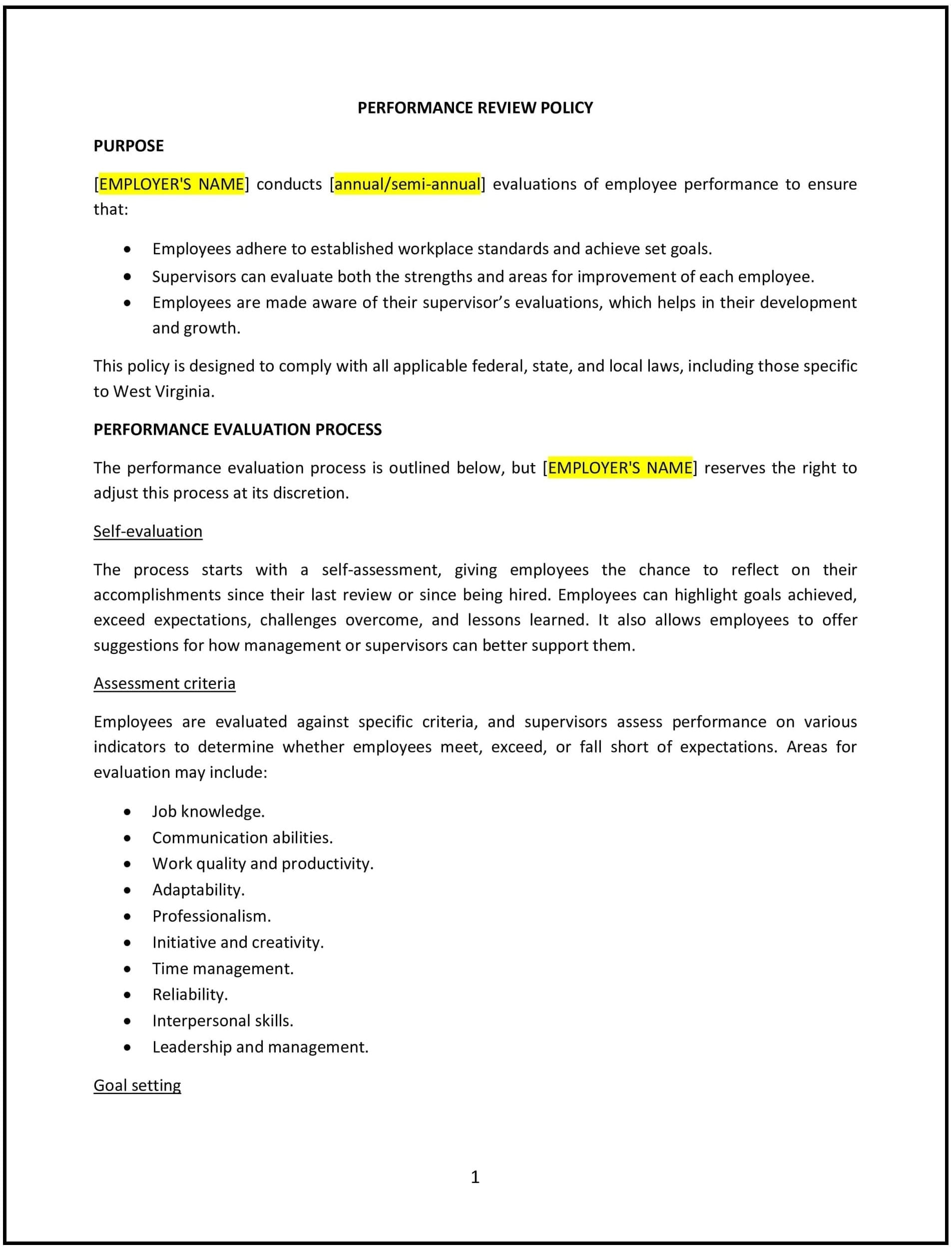Performance review policy (West Virginia): Free template
Got contracts to review? While you're here for policies, let Cobrief make contract review effortless—start your free review now.

Customize this template for free
Performance review policy (West Virginia)
In West Virginia, a performance review policy establishes a structured process for evaluating employee performance, providing feedback, and fostering professional growth. This policy ensures that performance assessments are fair, consistent, and aligned with organizational goals while promoting transparency and accountability.
The policy outlines the frequency of reviews, evaluation criteria, and procedures for delivering constructive feedback and setting future goals.
How to use this performance review policy (West Virginia)
- Define review frequency: Specify how often performance reviews will occur (e.g., annually, semi-annually) and additional review instances, such as probation periods or promotions.
- Establish evaluation criteria: Outline the key performance indicators (KPIs) or metrics used to assess employees, such as productivity, quality of work, teamwork, and attendance.
- Standardize the process: Provide a consistent format for reviews, including self-assessments, manager evaluations, and goal-setting discussions.
- Provide constructive feedback: Emphasize the importance of balanced feedback, recognizing achievements while addressing areas for improvement.
- Support compliance: Align the policy with West Virginia labor laws and anti-discrimination regulations to ensure fair and lawful practices.
Benefits of using a performance review policy (West Virginia)
- Promotes transparency: Provides employees with a clear understanding of performance expectations and how they are evaluated.
- Encourages professional growth: Identifies opportunities for development and sets actionable goals to enhance skills and performance.
- Enhances employee engagement: Fosters open communication between employees and managers, strengthening relationships and trust.
- Supports compliance: Ensures reviews are conducted fairly and consistently, reducing the risk of bias or discrimination claims.
- Improves organizational performance: Aligns individual performance with company objectives, driving overall success.
Tips for using a performance review policy (West Virginia)
- Train managers: Provide training on conducting fair and effective performance reviews, including delivering constructive feedback.
- Document reviews: Maintain detailed records of performance reviews to ensure transparency and support decisions related to promotions, raises, or disciplinary actions.
- Encourage self-assessments: Involve employees in the review process by having them reflect on their own performance and set personal goals.
- Provide development opportunities: Use review findings to identify training, mentorship, or upskilling opportunities for employees.
- Review periodically: Update the policy to reflect changes in West Virginia laws, organizational practices, or industry standards.